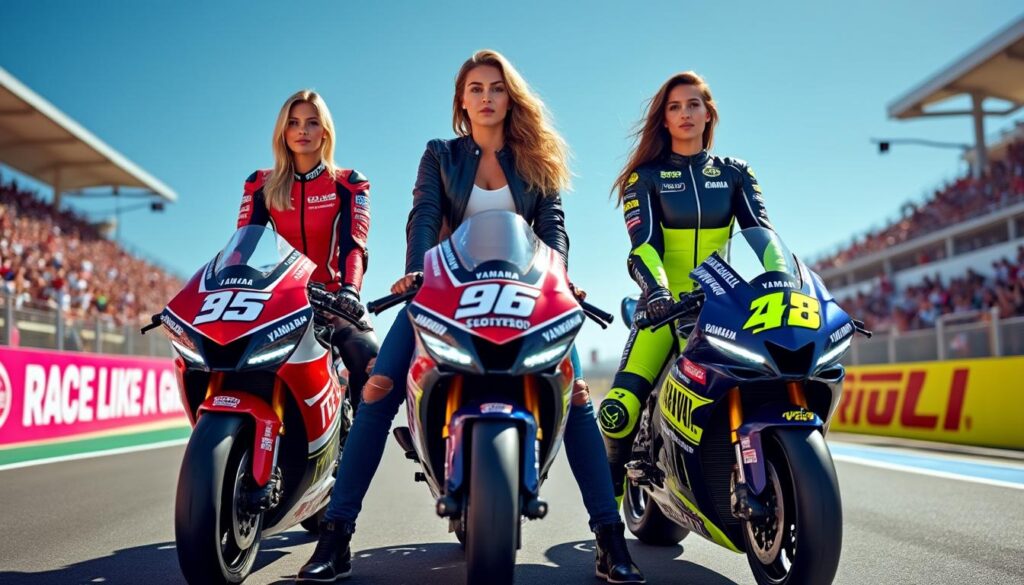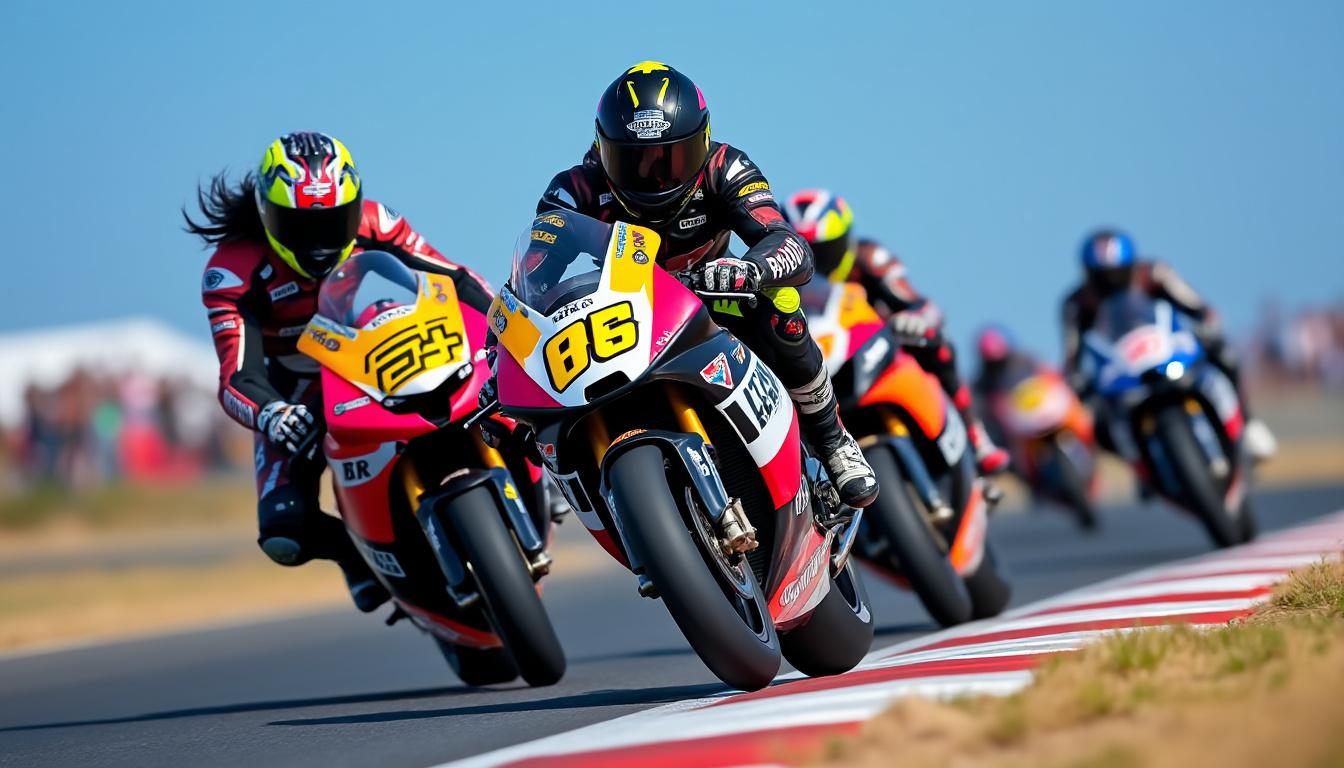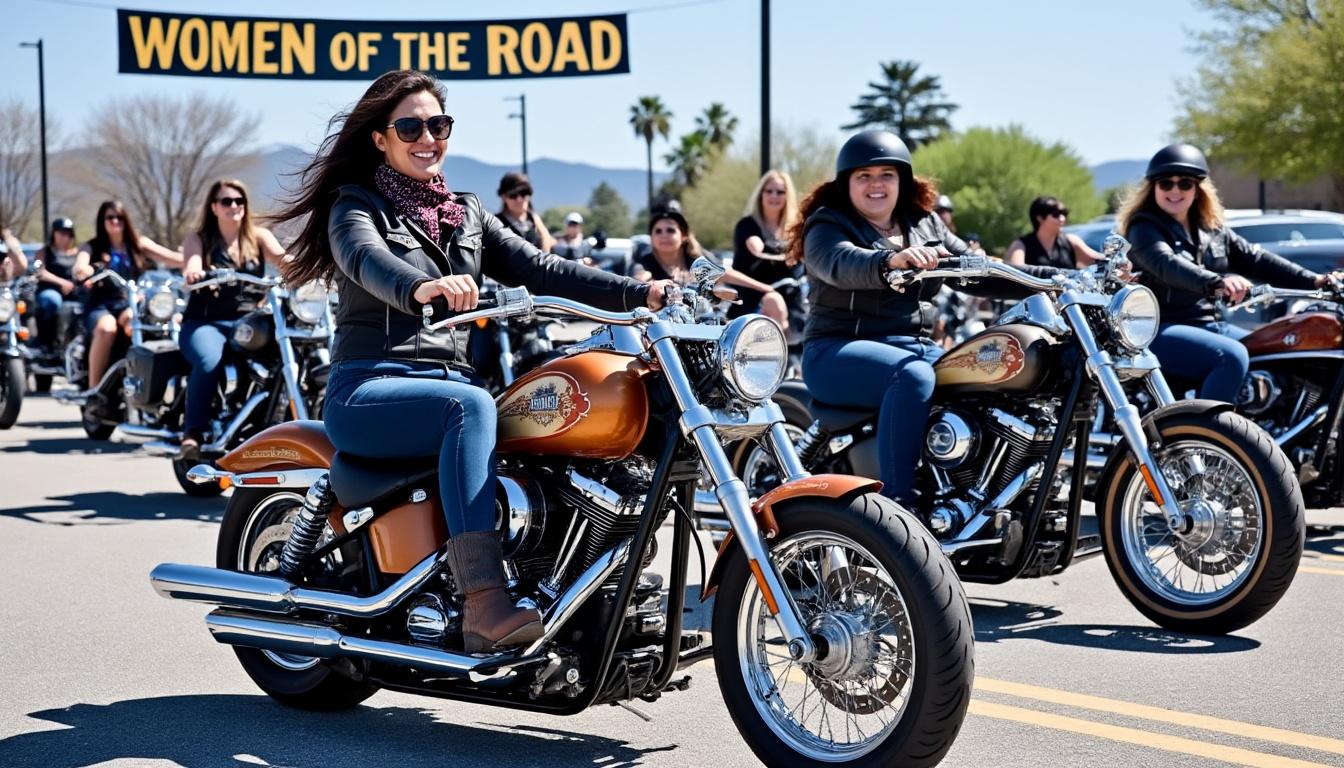Yamaha highlights female motorcycling with its initiative Race Like A Girl

In a world where mechanical competitions have long been seen as a predominantly male territory, Yamaha takes the lead and elevates the voices of women with its "Race Like A Girl" initiative. This new web series, unfolding on YouTube, consists of six captivating episodes revealing the journey of young talented riders competing on the circuits of the 2025 Women's World Speed Championship, known as WorldWCR (Women's Circuit Racing World Championship). The Japanese manufacturer, historically associated with the motorcycle realm, aims not only to give visibility to these athletes but also to inspire the next generation of motorcycle enthusiasts, breaking the gender stereotypes that persist in the field. Yamaha, as the only manufacturer supporting the WorldWCR, highlights stories of determination, resilience, and ambition, core values that resonate beyond the competitive world.
The stakes of gender equality in motorcycle sport
First and foremost, it is crucial to understand why gender equality in sports, especially in motorcycle competitions, is essential. Historically, women have been underrepresented in motorsports. This lack of representation can lead to harmful stereotypes and discourage young girls from engaging in activities that seem inaccessible to them. The "Race Like A Girl" series works to eliminate these prejudices and provide a role model to follow. Each episode features a rider who has overcome significant challenges to carve out a place on the circuits, thus contradicting preconceived notions about women's ability to excel in sports traditionally dominated by men.

Yamaha's initiative is also a response to a growing demand for diversity in sports. The increased visibility of women's competitions is a trend to watch. By 2025, more and more events and championships dedicated to women are emerging, and brands like Yamaha, Kawasaki, Honda, and BMW Motorrad are beginning to recognize the potential of the female market. By investing in series like "Race Like A Girl," Yamaha acts as a catalyst for positive change in the motorcycle world.
Encouraging figures
To illustrate the potential impact of these initiatives, here are some striking statistics:
| Year | % of female riders in competitions | Number of women's championships created |
|---|---|---|
| 2020 | 10% | 12 |
| 2021 | 15% | 15 |
| 2022 | 20% | 20 |
| 2023 | 25% | 25 |
| 2025 (forecasts) | 30% | 30+ |
These figures show the steady progress and commitment of sports organizations and brands to advocate for gender equality. With "Race Like A Girl," Yamaha's efforts in this direction are clear and promise to inspire future generations. The brand also intends to address themes such as self-confidence and perseverance, essential qualities for triumphing on the track.
Portraits of the leading figures in the championship
The web series focuses on six riders, each with a unique story of struggle and success. For example, the first episode highlights Australian rider Tayla Relph, who started riding at a young age. Tayla's journey reflects the very challenges faced by many women in the motorcycle world. Her dream of reaching the highest levels of competition has been marked by obstacles, but her passion for speed has always pushed her forward.
The following episodes also explore the lives of riders from diverse backgrounds. Each story illustrates not only exceptional talents but also the personal sacrifices these women had to make to realize their dreams. At times, they must juggle traditional careers with their passion for motorcycles, a duality that represents a real challenge in a competitive world. For each rider, a common point emerges: the thirst for recognition and success at the highest level.
The challenges to overcome
The path to success on the circuits does not simply boil down to riding skills. Riders must also overcome challenges such as:
- Access to resources: For many women, access to high-performance racing motorcycles can be a major obstacle.
- Financial support: Like in many sports, the cost of competition can be prohibitive. Female riders often have to find sponsors willing to support them.
- Media recognition: The media coverage of these women's journeys is often lesser than that of their male counterparts, hindering their ability to attract public attention and support.
Yamaha, with "Race Like A Girl," seeks to address these issues by shedding light on these challenges and calling on the entire motorcycling community to support these women. These initiatives aim to create an ecosystem where all skills can shine, regardless of gender.
Towards a story of collective inspiration
These life stories illustrated in the "Race Like A Girl" series are not solely aimed at the motorcycle world but are part of a broader societal change. Sport, as a reflection of culture, can play a key role in the fight for equality and inclusion. Who would have thought that brands like Yamaha, Honda, or Ducati could become pioneers of a societal revolution in a sector long dominated by men?

The stories of these riders are certainly individual, but they resonate with a collective power. They show that when a community rises to offer equal opportunities, everyone can benefit. Each episode of this series encourages solidarity and mutual support, values that should transcend racing and extend to all areas of life.
The future of women's motorcycling
Through this initiative, Yamaha is committed for the long term. By involving women in all aspects of the competition, from design to implementation, the brand demonstrates a sincere commitment to inclusion. Other brands such as Suzuki, KTM, and Triumph are also beginning to evolve their strategies to include more women in their teams and projects.
This paradigm shift is also reflected in motorcycle models specially designed for women, which take into account aspects such as weight and ease of handling. The trend is towards customization, and Yamaha, with its adapted models, is at the forefront of this process. The major challenge remains convincing more women to actively participate in racing, not only as riders but also as spectators, journalists, and even technicians.
The role of digital platforms in transforming perceptions
"Race Like A Girl" is primarily broadcast on YouTube and uses social media to reach a wider audience. With the advent of digital media, brands can now share their stories directly with consumers, bypassing traditional channels. Social media platforms like TikTok and Instagram are becoming essential tools for riders to share their experiences, interact with their fans, and encourage other women to enter the world of motorcycling.
The comments and reactions from the public on these platforms show a growing interest in the stories of women in motorcycling. Brands, aware of this dynamic, are turning to innovative content strategies, seeking to drive a change in the perception of women's roles in sports. Videos, blogs, and live events can all contribute to shaping a new image of female athletes, appealing to younger generations.
The consequences of increased representation
Finally, Yamaha's initiative has implications far beyond mere competitions. By spreading positive images of female riders, it contributes to a more balanced representation in popular culture. Young girls who discover these role models may feel valued and encouraged to explore passions they might never have considered. These representations play an essential role in the fight against gender stereotypes, not only in motorcycling but also in other sectors, whether they be sports, cultural, or professional.
In summary, initiatives like "Race Like A Girl" mark a significant turning point in the motorcycle world. They attest to a future where gender equality can translate into concrete actions, inspiring stories, and a more welcoming competitive environment for all. With community support and the determination of riders, women's cycling and motorcycling could well become respected references on par with their male counterparts.
Source: www.motoservices.com
Leave a Reply


Articles relatifs